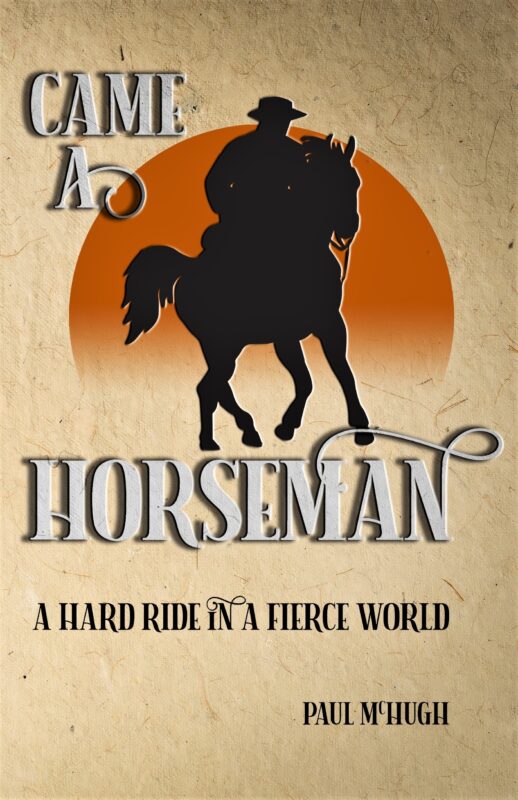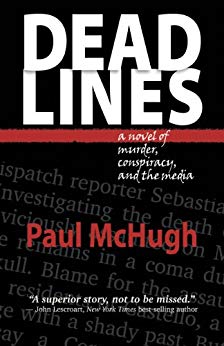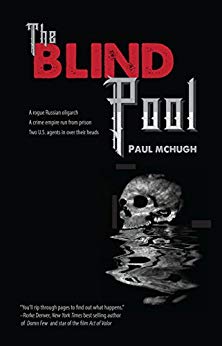
Bad poets imitate, good poets steal—there’s your abridged gem of an epigram by T. S. Eliot.
In truth, it’s how every artist advances. We gain elevation when we stand on the shoulders of those who went before us. We have almost no other way to rise. Musicians pick up on the chops of their predecessors. Painters study the strokes, shades and compositions of earlier masters. And writers scrutinize existing word trains that best illustrate how to transform squiggles on a page into a living, breathing story.

As an immortal (and amoral) fictional character, Fagin, sang in film version of Dickens’ Oliver Twist, “You’ve got to pick a pocket or two, boys.”
An enduring question, though, is: how does one make those chops stick? Never by continuing to endlessly imitate. That’s just how one starts. Afterward, one faces the need to create. You first consume and digest the works of others, next turn to nurturing your own re-inventions of adjacent material.
SPY VS SPY
Currently, the prose master whose pockets I like to pick most is John le Carré, doyen of British letters, and author of more than two dozen clever spy thrillers, crammed with intrigue.
Although, please let me say this about that: “thriller” isn’t quite the right genre label to apply to what le Carré steadily manages to pull off.

For one thing, most modern thrillers tend to way over-indulge in both explosive pyrotechnics and fancy weapon fetishes. When such things dominate plots and scenes, they render the humans in them two-dimensional. The characters become reduced to mere caddies, toting lethal implements about and then yanking triggers—whether doing so happens to be an elegant solution or not.
John le Carré resolutely marches the opposite way; clearly, he listens to his own inner drummer girl. Violence can and does occur in his works, however, it’s usually after a crisis has been deftly developed. In the bulk of each story, there’s a fraught human situation, one that he endeavors to explain, explore and exploit. His main aim is not tickling our lizard brains with manifestations of physical peril, but making points about who we featherless bipeds are: how we deceive ourselves and others; the clumsy ways we manage our affairs; and the sad and sometimes terrible consequences that result from mendacity and delusion.

“Casablanca,” among the most intense and moving war films of all time, actually achieves its effects with a minimal display of violence. We see some anonymous gunplay in the opening, to set the stage. But after its main characters are introduced and the plot gets moving, just one gun is fired one time. Everything else in the movie builds up to that particular moment.
John le Carré has a keen grasp of this kind of spartan narrative arc. That’s why he dismisses Ian Fleming’s action hero, James Bond, as a mere gangster. For a more true-to-life narrative antidote he presents master spy George Smiley—a bespectacled, flabby, cuckolded temporizer. Smiley nonetheless outwits every opponent with a honed cunning and a glacial patience, while he awaits the perfect moment to pounce. Which he and his minions do, but only after meticulous preparations.
“Q” type gadgets are neither required nor used. Martial arts are just sparingly deployed. Guns and grenades might be displayed, yet rarely get detonated.
I mean, especially in the first half of the work, where a mystery portion provides a build-up. Here I have a few, well-defined goals: first, grab the attention of the reader; next, incite curiosity in the reader; furthermore, get my characters and their interrelations or lack of them established; and finally, do my utmost to have the reader care about their fates.
A HEFTY DASH OF PAPRIKA

So far, so good. After that, it’s high time to begin to inflict their fates upon them. Like Zeus, I love to complicate things for mortals. And so, in the second half of the book, we slide inexorably into thriller-dom. I go full gonzo on the plot situation, unscrew all the caps of the little jars in my spice rack and dump those contents into the stew. I’m not so sure John le Carré would agree with that procedure, but since I’m now writing my second half, I no longer care.
Like I said, it’s useful to imitate, but only up to a certain point. Follow your favorite trailblazers, but then seize a chance to bushwhack!
As you do, don’t forget to take your moral compass. That’s for some characters to use. And bring along your amoral compass, too. That’ll be for all the others.
For those unfortunate readers and writers—must be a few, somewhere in this galaxy—who confess themselves unfamiliar with John le Carré and his works, let me make a couple of suggestions.

An excellent place to begin is to read his third novel and first big hit, “The Spy Who Came in from the Cold” (1963). It handles the types of characters (conflicted) and themes (loyalty, betrayal, ambiguity) that you’ll see in his subsequent works, yet rarely so clearly, even viscerally, as here. So, consider “Cold” a primer of sorts.

If you don’t have time to read this book, or happen to prefer film, the movie version (1965) with Claire Bloom and Richard Burton, provides an excellent rendition. Though I must say, the George Smiley character on offer in this flick seems rather a cad, and doesn’t measure up to subsequent presentations of Smiley by the distinguished actors Alec Guinness and Gary Oldman. However, Burton’s performance as a field agent in “Cold” is supreme. He convincingly dramatizes le Carré’s most enduring theme: how can a thoroughly compromised character manage to cling to a shred of human decency? In what manner does he then act in order to prove that he can still so cling?
Interestingly, that’s also the major thematic chord struck in le Carré’s last good novel, “Agent Running in the Field” (2019).
One more book did get published after his death, “Silverview” (2021) but I consider that item negligible, a mere draft fluffed up by his heirs. Putting it in print doesn’t exactly do le Carré a disservice—I mean, what true fan doesn’t wish to see any potential project the auteur had in mind? But if you’re not a fan, I’d recommend letting this one rest in well-deserved obscurity.
On the other hand, “Agent” not only reveals John le Carré operating at near full powers (the man was in his late 80s, for Pete’s sake!) but also shows him taking a huge risk as a novelist. Once he establishes an interesting premise, he takes off on a long and apparently heedless ramble through the life of his main character, a British intelligence service’s midlevel boss named Nat—an operator nearly past his prime and poised to descend into irrelevance.

But before Nat plummets into somnolent retirement, he fires one last, ringing shot against all that he’s come to doubt, and thereby provides succor to his own character. He finally locates a sense of virtue that he schemes to salvage and defend.
This takes a while. Once le Carré swings back around to explaining his premise and shifts his plot into second gear, you’re halfway through the book! My friends, this is performing a novelistic trapeze stunt with no net. Yet le Carré pulls it off. He lands it. How? Hey, I ain’t pushin’ no spoilers here. Read it and find out.
But oh, what the heck, I’ll provide you with one general clue.
MY SKELETON KEY
He makes the central character, and several of the main peripheral characters so realistic and so compelling that a reader simply lusts to discover more about them. To bolster this claim, I’ll say that one personal issue John le Carré sought to work out and at and on throughout his life and his writing career was the relationship between father and son—here represented by interactions between Nat, the agent, and Ed Shannon, the young man who falls into his orbit. And another lifelong project for le Carré was deepening his awareness of the real nature of good women and of trust and of love—represented in the story by a belated and yet crucial boost in the relationship between Nat and his long-suffering wife Pru, or Prudence.
Do you require any other appetizers to tempt you to take up and read “Agent?” Well, you’ll find therein le Carré’s opinion of Donald Trump (fascist), Boris Johnson (pig-ignorant), and Brexit (bloody lunacy). All of which may explain why, shortly before he died, le Carré chose to become a citizen of Ireland.

In truth, though, you don’t have to read “Agent” to appreciate it. A better way is to listen to le Carré himself narrate this story via the audio book. He accomplishes this with excellent tone and modulation. He masters both national and regional accents, the difference between youth and age, and the vagaries of individual personalities, which depend on the story’s circumstances.
Some authors read their work with all the facility of toddlers practicing scales on a toy keyboard from Target. But le Carre’s vocal instrument is like a massive pipe organ taking up the entire back wall of a cathedral, and he has the talent to not only play all its pipes and stops, but also to compose.
AUDITING THE AUDIO
Where does it come from? Well, examine the man’s history, and such a facility will no longer astound. Then known as David John Moore Cornwell, he was a lad of a mere sixteen years when he decided he’d had quite enough of English schools. So, he took himself off to the University of Bern in Switzerland to study language. He was teaching French and German at Eton when he got officially inducted into the British intelligence services, first the domestic MI5 and then the international “circus,” MI6.
His work over the years included recruiting and running agents of many nationalities, interrogating refugees from the Iron Curtain countries, infiltrating leftist organizations, tapping phones and managing “black bag” intrusions. This medley of complicated relationships gave him an ear (to understand what people were saying and who was saying it) and a tongue (to speak back in whatsoever manner might help him accomplish his mission). To state that any good spy, especially an agent runner, must therefore be an expert seducer would not be wide of the mark.
While I researched this newsletter, I was delighted to discover that le Carré has narrated, not one or two of his books, but a good swath of his oeuvre. I now plan to buy those audio versions and listen to his recordings repeatedly. I’m playing “Agent Running in the Field” for the second time, and enjoying it immensely.

To me, this will provide a master class, help me grasp one more secret to ultimate success as an author. John le Carré has the ability to slip himself into his characters, to fully immerse himself in their minds, into their times and individual situations. He’s able to play them as well as a Richard Burton in his prime played Alec Lemas. In this way he wins an ability to tell their stories in a compelling, yet a natural and unforced manner. The audio evidence makes this obvious.
If an author cannot fascinate himself with his own characters, his ability to interest a reader likely plummets. But if he inhabits them fully, then he can render them intriguing.
This is one of my professional goals. Consequently, I’m pleased to lend an ear to the master.

The rather intelligent intelligence operative Cornwell, nee le Carré, aka “the Square,” has left the scene. But maybe those keen eyes, under those bushy eyebrows, still keep watch from around the corner. I check on my surroundings, then pick up his script from the dead drop. And perhaps it pleases him to see someone strive once again to decode his messages.
Note: The full and original T. S. Eliot quote reads, “Immature poets imitate; mature poets steal; bad poets deface what they take, and good poets make it into something better, or at least something different.”








